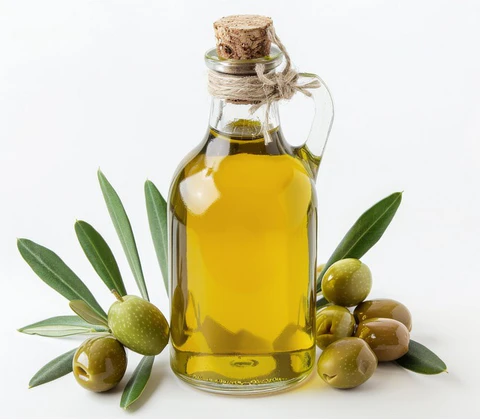The Benefits of Olive Oil: A Mediterranean Treasure

Olive oil is not just a staple in Mediterranean cuisine; it has been praised for centuries for its numerous health benefits and versatile use in cooking and skincare. As more people become health-conscious and look for natural ways to enhance their well-being, olive oil emerges as a popular choice. In this blog post, we will explore the myriad benefits of olive oil and why it deserves a place in your pantry and daily routine.
A Brief History of Olive Oil
Olive oil has a rich history dating back thousands of years. Historically, it has been used not only as a food source but also for medicinal purposes, beauty treatments, and even as a fuel for lamps. Ancient civilizations, including the Greeks and Romans, revered olive oil as a symbol of peace and prosperity. Today, it continues to be a cornerstone of the Mediterranean diet, which is renowned for its health benefits.
Nutritional Profile of Olive Oil
Olive oil is primarily composed of monounsaturated fats, particularly oleic acid, which makes up about 73% of its total oil content. It also contains modest amounts of vitamins E and K and abundant antioxidants, such as oleocanthal and oleuropein. These compounds contribute to its health-promoting properties.
Heart Health
One of the most celebrated benefits of olive oil is its positive impact on heart health. Studies have shown that consuming olive oil can reduce the risk of cardiovascular diseases. The monounsaturated fats in olive oil help lower bad cholesterol (LDL) levels while maintaining or even increasing good cholesterol (HDL) levels. Additionally, the antioxidants present in olive oil help reduce inflammation and decrease the risk of heart disease.
The Mediterranean diet, which heavily features olive oil, has been linked to a lower incidence of heart attacks and strokes. Incorporating olive oil into your diet can be as simple as using it as a dressing for salads, cooking with it, or drizzling it over cooked vegetables.
Anti-Inflammatory Properties
Chronic inflammation is a key driver of many diseases, including cancer, arthritis, and cardiovascular disease. Olive oil’s rich content of antioxidants, particularly oleocanthal, has strong anti-inflammatory effects similar to those of ibuprofen, a common anti-inflammatory drug. Regular consumption of olive oil can help reduce inflammation, thereby lowering the risk of diseases associated with chronic inflammation.
Weight Management
Despite being a fat, olive oil can be a beneficial addition to a weight management plan. Its healthy fats can promote satiety, making you feel fuller for longer and reducing overall calorie intake. Furthermore, studies have shown that people who consume olive oil tend to have lower body weight and are less likely to gain weight over time compared to those who consume other fats.
Diabetes Prevention
Olive oil can play a role in preventing and managing type 2 diabetes. Its consumption has been associated with improved blood sugar levels and insulin sensitivity. The Mediterranean diet, which emphasizes olive oil, has been shown to reduce the risk of developing type 2 diabetes by improving the body’s ability to process glucose.
Cancer Prevention
Olive oil’s potential role in cancer prevention is an area of active research. The antioxidants in olive oil may help neutralize free radicals, reducing oxidative stress, which is a risk factor for cancer development. Some studies suggest that regular consumption of olive oil is associated with a lower risk of certain types of cancer, including breast and colorectal cancer.
Skin and Hair Health
Olive oil is not only beneficial when consumed but also when applied topically. Its moisturizing properties make it an excellent natural treatment for dry skin and hair. Rich in vitamin E and other antioxidants, olive oil can help protect the skin from premature aging and damage caused by free radicals. It can be used as a natural moisturizer, a makeup remover, or a treatment for dry, damaged hair.
Bone Health
Emerging research suggests that olive oil may have a positive impact on bone health. The polyphenols found in olive oil can help increase bone mineral density by promoting the proliferation of bone cells. Regular consumption of olive oil may thus help reduce the risk of osteoporosis and improve bone health.
Cognitive Function
There is growing evidence supporting the role of olive oil in maintaining cognitive function and protecting against neurodegenerative diseases, such as Alzheimer’s. The antioxidants and healthy fats in olive oil may help reduce oxidative stress and inflammation in the brain, potentially improving memory and cognitive function.
How to Select and Use Olive Oil
To reap the maximum benefits from olive oil, it is important to select high-quality extra virgin olive oil. This type of olive oil is extracted using natural methods and is standardized for purity and sensory qualities like taste and smell. It is the least processed form of olive oil and retains the most beneficial compounds.
When using olive oil, it’s best to store it in a cool, dark place to prevent oxidation. While olive oil is versatile and can be used for cooking, dressing, and baking, it is most beneficial when used raw or at low to medium heat to preserve its nutrients.
Conclusion
Olive oil is a true gift from nature, offering an array of health benefits that range from heart health and inflammation reduction to improved skin and cognitive function. Its rich history and central role in the Mediterranean diet underscore its importance as a dietary staple. By incorporating olive oil into your daily routine, you can enjoy its delicious flavor while promoting overall health and well-being. Whether you use it in cooking, as a dressing, or in your beauty regimen, olive oil is a versatile and valuable addition to any healthy lifestyle.





